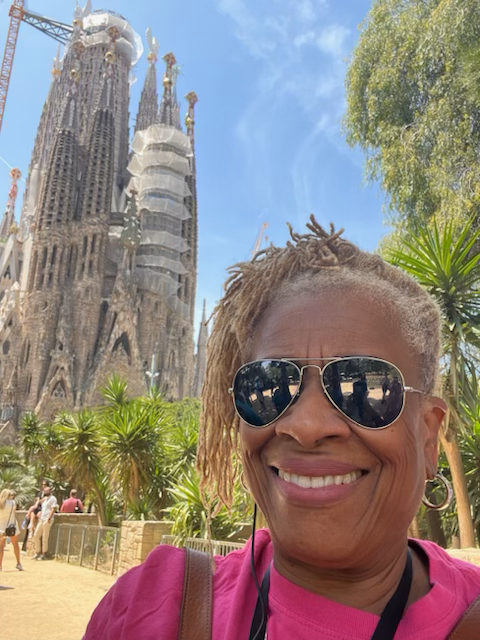
Geri Thomas’s Next Season
Clean break
When I retired from Bank of America after 45 years, I was purposeful in leaving behind my role and stepping into my next chapter. When people came to me looking for professional or industry advice, I was more than happy to connect them with other people still working in the space, but I was intentional about shifting my energy to a new focus. I wanted to start engaging with the world as myself, not as “The Bank.” For me, it was a bit easier since I am an Atlanta native and have always been involved in a lot of community work that was not professionally driven.
A balance of next season pursuits
Today, I have a broad portfolio of interests. I started my own consulting LLC, and I am an advisor at MyNextSeason. I also serve on the advisory board for the business school at Georgia State and on the board of redefinED atlanta, a nonprofit working to drive systemic improvement in K-12 public education. It is a very rewarding combination of activities that also allows me the freedom to pursue my passion for travel and exploring new cultures—which is a top priority.
Making health a priority
I recognized early on that to live the vibrant life I envisioned for myself post-retirement, I had to be healthy. So, eight years ago, I started going to a trainer, and I still go to that trainer today. Everybody knows it. I don’t miss it. I do it because I want stamina. I want strength and flexibility. I want to be able to go and do and not be held back by any physical limitations. Who knows what my productivity would have been if I had started focusing on my physical health earlier, but I can tell you, at 73 years old, it really makes my life work for me now. My days are so full; it’s amazing to think that I ever had time to work before!
Real results
If I hadn’t committed to my training, I wouldn’t be able to do the things that I’m enjoying so much today. I just came back from an amazing trip to Spain, where it was 102 degrees, and we walked about four miles a day. It was horribly hot, but thankfully, I wasn’t too physically taxed and was up for the adventures of each new day.
Setting boundaries for mental health
Mental well-being is just as important as physical health. I think another essential practice I have started in my next chapter is setting boundaries. When you’re working for someone else, it’s hard to set boundaries about what you want to or are willing to do. Being able to say no and not feeling bad about it has been so important in this phase of my life. It was kind of hard for me to put those boundaries in place initially. But now I have no hesitation and no guilt. People have come to just know—No, I’m not taking on that type of work. I’m not able to have a call today. I don’t do breakfast meetings. I’m not going to start before 9 am.
Stress of transition
I’ve noticed the stress a retirement transition can have on colleagues and clients. I think it is key to recalibrate how you view your value and what is most important to you. In my coaching, I try to help clients realize that it’s ok to experience a sense of loss as their routines change but to remember who they are and what they know will not be lost. I enjoy supporting people as they identify what they want and explore how they can achieve it. Reminding them they have the power to make life decisions that are in their best interest and in the direction that they will find happiness.
Measure by joy
While I attribute part of my ability to live a fulfilling life since retirement to focusing on physical and mental fitness—it also really comes down to choosing joy. In my opinion, there is really nothing that you HAVE to do in life. If something doesn’t make you happy—an activity or relationship is not bringing you joy—don’t do it.




